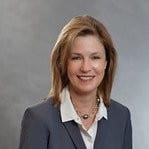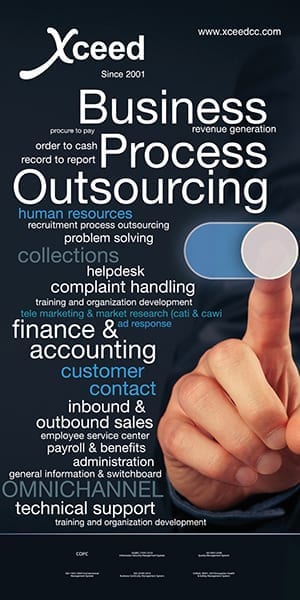Outstanding Women in Leadership: Vicki Phelan, KPMG
By: Sandy Frinton, Editor, PULSE Magazine
 Vicki Phelan never aspired to enter the male-dominated corporate world. But as a young graduate with a master’s in environmental management from Duke University, she found herself interviewing for a job at IBM in the early 1980s.
Vicki Phelan never aspired to enter the male-dominated corporate world. But as a young graduate with a master’s in environmental management from Duke University, she found herself interviewing for a job at IBM in the early 1980s.
Landing the job selling large mainframes for the computer giant launched her into unchartered territory where she was clearly a minority wearing business suits with pumps as a woman in a predominately male company. “It was difficult and challenging – but it changed my life,” she says.
Today, as Managing Director — Shared Services and Outsourcing Advisory (Life Sciences) at KPMG, Phelan is helping to change the lives of other women in the field through her leadership example and mentoring as a role model.
A passionate advocate for women leadership and empowerment, she founded KPMG’s premier women’s leadership roundtable called Women in Shared Services and Outsourcing 12 years ago and has been recognized by her company as an exceptional woman in leadership.

From her IBM start in sales and later in the chemical and pharmaceutical sectors, she has 25 years of industry knowledge and outsourcing consulting experience in the Pharmaceutical and Life Sciences industry. She is a frequent speaker at outsourcing conferences and has been widely published.
PULSE talked to Phelan about taking risks, mentors, lessons she’s learned and more.
Have you taken risks and failed? I left IBM and became the first female industrial real estate broker in Philadelphia. I hated it but taking risks is part of my DNA. And part of taking risks is realizing you might fail, but you grow as a result of it.
How did you start Women in Shared Services and Outsourcing? We realized there were only a few women in the room, so we identified senior-level women in outsourcing on the buy side. We hold roundtable conferences twice a year and our audience includes many of the leading women in the shared services and outsourcing field at today’s leading companies. This forum has been incredibly valuable to the women who attend and allows them to express who they are, learn from each other’s mistakes and become better as individuals and senior-level women.
 You also are involved with KPMG’s Network of Women (KNOW). How has that been valuable? I joined KPMG through their acquisition of EquaTerra in 2011, so I went from a start-up company to one of the B 4 accounting and professional services firms. On my first day when I walked in the Philadelphia office, there was a card and a gift welcoming me to the KPMG Network of Women. I became very active in mentoring women of all ages, positions and roles at KPMG. I talk to women about things they are facing that seem insurmountable that I’ve lived through like growing their careers, working in a big firm, traveling, and balancing work and a family. I share my experiences and am very open about what works and doesn’t work for me. I get as much out of mentoring as I give. I feel it’s my responsibility as a senior woman in leadership to first, pull yourself up and then, reach back and pull someone else up behind you.
You also are involved with KPMG’s Network of Women (KNOW). How has that been valuable? I joined KPMG through their acquisition of EquaTerra in 2011, so I went from a start-up company to one of the B 4 accounting and professional services firms. On my first day when I walked in the Philadelphia office, there was a card and a gift welcoming me to the KPMG Network of Women. I became very active in mentoring women of all ages, positions and roles at KPMG. I talk to women about things they are facing that seem insurmountable that I’ve lived through like growing their careers, working in a big firm, traveling, and balancing work and a family. I share my experiences and am very open about what works and doesn’t work for me. I get as much out of mentoring as I give. I feel it’s my responsibility as a senior woman in leadership to first, pull yourself up and then, reach back and pull someone else up behind you.
It sounds like you have seen a lot of progress made since the start of your career. Do women still have a long way to go? I think that there is still room for improvement at the senior management levels in most companies. It’s important for women to see a path to leadership and a roadmap and be confident in who you are. I feel strongly that, regardless of your gender, if you are capable and have a fire in your belly, your good track record will pay off.
What strengths do women bring into the workplace? As a firm that fields teams to do delivery work, we have to mirror the diversity of our clients and cultures. Women bring valuable qualities such as a great ability to be sensitive and really follow up on client needs. We listen and absorb and contemplate, which is so important to know your client.
Who are your mentors? One mentor I had was my first branch manager at IBM. I remember the first time I presented to her as part of my coursework she literally kicked me out of the office and said: “Don’t come back in here until you are 150 percent prepared.” That’s why being prepared is so important because you can get kicked out of a meeting internally or externally. Even when I came over to KPMG, I felt very awkward and one of the guys in life sciences said: “Let me clear the way for you to do what you do best.” I’ve been really lucky to have great mentors and most have been men.
What advice would you give to other women? The advice I would give women, whether it is in the workplace or not, is to be authentic. Don’t compromise who you are and the values you stand for because, in the end, you will regret it. Also, listen and observe those around you, as you will always learn more from doing that and will bring more value. Lastly, be confident in your capabilities and give yourself permission to take risks. This will dramatically increase your odds of success. Oh, and have a sense of humor! “… Be confident in your capabilities and give yourself permission to take risks. This will dramatically increase your odds of success. Oh, and have a sense of humor!”
WOMEN EMPOWERMENT PANEL AT OWS19
Want to learn more about how outsourcing and other collaborative business models can be used as a powerful tool for women empowerment? IAOP’s Women’s Empowerment, Leadership & Diversity Chapter will lead a breakout session at OWS19 on Feb. 19 exploring how women executives in typically male-dominated industries command outcomes by empowering others.
Hear from a panel of women leaders and champions of women about successes and challenges, mentoring the next generation to accept diversity, and the current work environment with the #Metoo movement.
Get involved in the discussion on social media using the hashtags: #WEinclude and #WEarediverse.

About the Author: Sandy Frinton is the Editor-in-Chief of PULSE Magazine.





